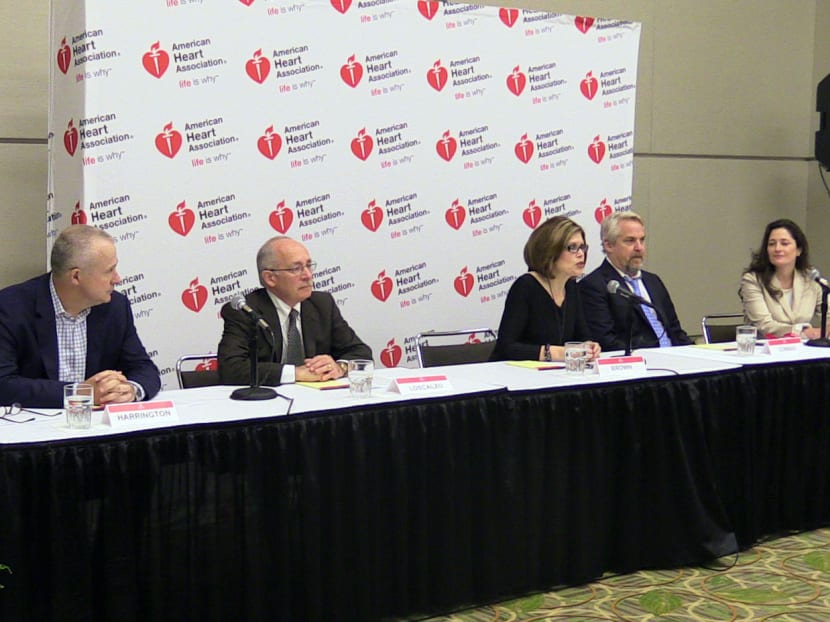Google, American Heart Association team up on new research venture
ORLANDO (Florida) — A company whose name is synonymous with eyeballs on the Internet is turning its attention to hearts. Google Life Sciences, a research group recently spun off from its parent corporation, is teaming with the American Heart Association in a US$50 million (S$71 million) project to find new ways to fight heart disease.

From left: Robert Harrington, MD, Joseph Loscalzo, MD, American Heart Association CEO Nancy Brown, Andy Conrad, CEO of Google Life Sciences and Jessica Mega, MD. Photo: American Heart Association
ORLANDO (Florida) — A company whose name is synonymous with eyeballs on the Internet is turning its attention to hearts. Google Life Sciences, a research group recently spun off from its parent corporation, is teaming with the American Heart Association in a US$50 million (S$71 million) project to find new ways to fight heart disease.
The heart association’s half, US$25 million over five years, is the largest single research investment in its history. For the Google group, its latest biomedical venture will join projects that include whiz-bang devices such as driverless cars, contact lenses that monitor blood-sugar for diabetics and health-tracking wristbands.
The project was announced yesterday (Nov 8) at a heart association conference in Orlando.
Heart disease is the world’s top killer, a problem that “seems ripe for new innovation” and disruptive, unconventional thinking, said Google Life Sciences’ chief executive Andy Conrad. Progress has been slow and “we should shake it up a little bit”, he said.
Besides cash, Google has tech tools to offer such as sensors to monitor the health of “people in the wild” versus just when they go to doctors and huge capabilities for data analysis. The company is aiming for a cure, Mr Conrad said. There’s no guarantee of success, but “the only thing we can promise is that we’ll try harder”.
By early next year — Valentine’s Day, “a big heart day”, Mr Conrad said — a team from Google and the heart association hope to pick a project leader, who might be a cardiologist, a nurse or “a teenager from Wisconsin”, depending on what skills and ideas that person can bring to the table. The team is looking for “a maverick”, he said.
The venture “really allows us to think about ... doing research in a different way,” said Dr Robert Harrington, chairman of the Stanford University School of Medicine and a member of the heart association’s board.
Traditional research has brought only incremental improvements in heart disease treatment.
“We are trying to do something disruptive here,” Dr Harrington said. AP






